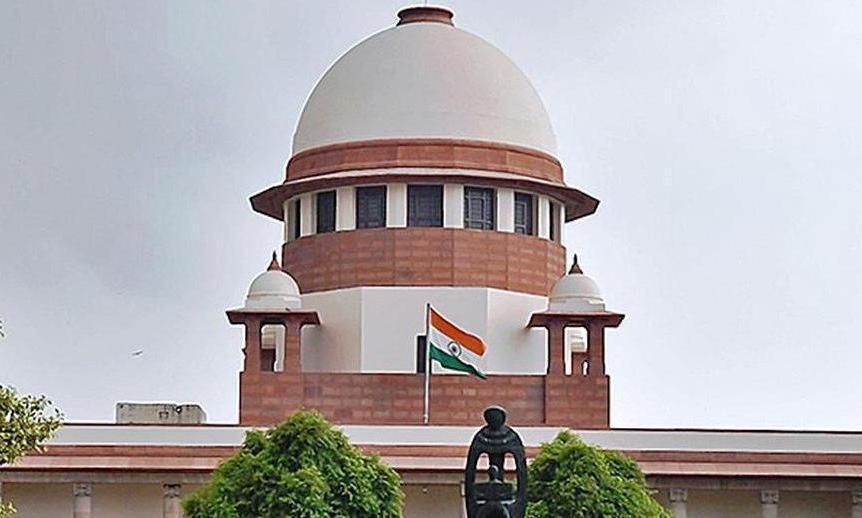
Crucial court ruling on National Education Policy
text_fieldsA landmark judgment delivered by the Supreme Court on Tuesday contained defining remarks about the rights and freedoms of states in the domain of education. The Supreme Court was dismissing a plea filed by Delhi-based lawyer G.S. Mani which sought an order asking the states of Tamil Nadu, Kerala and West Bengal to implement the National Education Policy 2020, which was rejected by the three non-BJP ruled states. The top court said that no state can be forced to implement the National Education Policy. A bench of Justices J.B. Pardiwala and R. Mahadevan observed that the plea did not fall within the ambit of Article 32 of the Constitution and did not involve any violation of citizens’ rights giving any right for the petitioner to file such a prayer.
Also read: Maharashtra halts mandatory Hindi order amid backlash over language imposition
Although the National Education Policy was approved in 2020, its implementation began in the 2023-24 academic year. While various states have differences of opinion on many key elements of the same, the Centre is bent on implementing it by any means. There are several reasons for this. One reason is that apart from the urge to bring all sectors under the control of the Centre, it falls in line with the BJP's vision of a monolithic nation controlled by the Centre. Secondly, if this condition is tied to the funds provided to the education schemes of the states, the states can be entangled through that string to pull. Thirdly, by implementing the three-language formula as part of the national policy, an attempt can be made to achieve the BJP's inroads into the states where Hindi is not popular and to bring those states closer to the Hindi stream in the process weakening the regional languages. It is probably all these factors that prompted the Tamil Nadu Chief Minister M.K. Stalin to come out virulently by declaring that if the money is given only on condition that the NEP is implemented, then the state would rather forgo the 2000 crore rupees Centre is supposed to give. The top court however did not go into the evaluation of merits of the National Education Policy as it is not within the scope of the current petition.
Also read: Demanding linguistic equality is not chauvinism: Stalin
The Centre is clearly exercising its power to impose policies on the states. If the states do not have the right to determine educational policies and priorities, the pertinent question is why then the states run schools and universities at all. The inclusion of education in the Concurrent List of the Constitution does not mean that the states are out of the picture. The states and the Union have equal rights in law-making. In case of conflict between the two, the central law will prevail. However, since that is also subject to judicial review, the courts must determine which side is in conformity with the Constitution. When the subjects chosen by the central agency NCERT to determine the school syllabus are applied equally to all the states, differences in opinions often become an issue. At the higher education level, institutions like UGC and NAAC, which have now become the centers of authority for central controls, have started functioning in a wider scope than their previously envisaged role. The UGC, which was conceived to ensure academic quality at the national level and determine educational development assistance, is now more in the role of regulating the method of appointments, the shape of the curriculum, and the appointment of VCs. In effect, all of that has become a means for the Centre to interfere. It is amidst these trends that the threat to implement NEP and take the funds or forgo Central assistance is raised. d
Also read: Tamil Nadu will not implement NEP even for Rs 10,000 crore: CM MK Stalin
In light of the verdict, Kerala is considering approaching the Supreme Court against the Centre. This move is to get the financial assistance of Rs 1500 crores from the PM SHRI scheme, which has been withheld due to the non-signing of a Memorandum of Understanding with the Centre which includes acceptance of the NEP. General Education Minister V. Sivankutty said that he has spoken to the Tamil Nadu Education Minister about this. This legal battle that Kerala is aiming for must lead to a decisive conclusion. Other states affected by the Centre's decision are also likely to join it. While on the one hand, the centralised and anti-federal thrust of governance in line with the political vision of the BJP needs to be stopped, on the other hand, the independence of the states that strive to maintain brotherhood and pluralism in the field of education needs to be safeguarded. It is hoped that the states concerned will act vigilantly by doing the necessary homework to resist excessive centralisation moves.


















